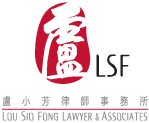Best Conveyancing Lawyers in Macao
Share your needs with us, get contacted by law firms.
Free. Takes 2 min.
Free Guide to Hiring a Real Estate Lawyer
List of the best lawyers in Macao, Macao
About Conveyancing Law in Macao, Macao
Conveyancing in Macao refers to the legal process of transferring property ownership from one party to another. Macao, as a Special Administrative Region of China, maintains its own independent legal system based primarily on Portuguese civil law traditions. Conveyancing involves a series of legal, financial, and administrative steps designed to ensure that property transactions are valid, binding, and enforceable under local law. It can cover residential, commercial, or industrial property deals. Engaging in conveyancing in Macao requires awareness of local practices, documentation standards, and compliance with registration requirements.
Why You May Need a Lawyer
There are several scenarios where legal assistance is crucial in the conveyancing process in Macao. Property transactions involve significant sums of money and legal obligations, so mistakes can have serious financial and legal consequences. You may need a lawyer for the following reasons:
- Reviewing sale and purchase agreements to protect your best interests
- Conducting due diligence, including investigating the legal title and any encumbrances
- Explaining your rights and obligations under Macao property law
- Ensuring all legal requirements for property transfer are satisfied
- Assisting with mortgage arrangements and related legal documentation
- Preparing and lodging the necessary documents with government authorities
- Resolving disputes or clarifying inheritance and co-ownership matters
- Representing you in negotiations or legal proceedings, if needed
Legal advice is especially important for non-residents, first-time buyers, or those unfamiliar with Macao law, as processes and documentation may differ significantly from other jurisdictions.
Local Laws Overview
Macao's property and conveyancing law is derived from the Macao Civil Code, which outlines the procedures and requirements for the valid transfer of real property. Some key aspects of local conveyancing law include:
- All property transactions must be formalized by notarial deed - private agreements are not sufficient for transferring ownership of real estate
- The transfer must be registered with the Macao Real Estate Registry to be enforceable against third parties
- Both parties must provide identification, proof of property ownership, and related documents for the transaction
- Foreigners are generally allowed to purchase property in Macao, subject to certain restrictions and notification requirements
- There are stamp duties and property taxes payable on property transfers, with rates depending on the value and type of property
- Co-ownership, usufruct, and leasehold property rights are recognized under Macao law
- Legal representation is highly recommended to navigate notarial requirements and complex or high-value transactions
Frequently Asked Questions
What is the first step in the conveyancing process in Macao?
The initial step involves negotiating and signing a provisional sale and purchase agreement, followed by a due diligence check on the property's legal status and title before proceeding with the notarial deed.
Who is responsible for preparing the transfer documents?
Typically, the buyer's lawyer prepares the transaction documents, but both parties may have their own legal representatives to review and finalize them.
Is it mandatory to involve a notary in the conveyancing process?
Yes, the transfer of real property must be executed through a public notary in Macao. The notary oversees the signing of the deed and ensures compliance with legal formalities.
Do I need to be physically present in Macao to complete a property transfer?
Physical presence is preferred, but you may appoint a legal representative with a valid power of attorney to act on your behalf if you cannot attend in person.
What are the common costs associated with conveyancing in Macao?
Costs typically include notary fees, registration fees, stamp duties, legal service charges, and any applicable taxes. It is important to request a detailed breakdown before proceeding.
How long does the conveyancing process take in Macao?
If all documents are in order, conveyancing can take a few weeks, but complex transactions or issues with title verification may extend the timeline.
Can foreigners purchase property in Macao?
Yes, foreigners are allowed to purchase property in Macao with few restrictions, but must follow local legal procedures and reporting requirements.
What happens if there is a dispute over property boundaries or defects?
Disputes may be resolved through negotiation, mediation, or, if needed, litigation in the Macao courts. Legal advice is advisable in these cases.
Are there property taxes I should be aware of?
Yes, property buyers must pay a stamp duty and may also be liable for ongoing property taxes, depending on the size and type of property.
Can a property be transferred as a gift or inheritance?
Yes, property can be transferred by way of gift or inheritance, but these processes also require compliance with formal legal and notarial requirements.
Additional Resources
If you need more information or assistance regarding conveyancing in Macao, consider contacting the following organizations:
- Macao Real Estate Registry - Responsible for property registration and title searches
- Macao Notary Offices - Handles the formalization of property transfers
- Bureau of Financial Services - Provides information on taxes and duties related to property transactions
- Macao Lawyers Association - Can refer you to a licensed lawyer experienced in conveyancing law
Next Steps
If you are planning to buy, sell, or otherwise transfer property in Macao, the following steps can help ensure a smooth process:
- Gather all necessary documents, including identification and property information
- Engage an experienced Macao lawyer who specializes in conveyancing
- Request a detailed breakdown of potential costs and fees involved
- Arrange for a notarial appointment to formalize the conveyance
- Ensure that all legal, tax, and administrative requirements are met prior to completing the transaction
- Register the property transfer with the relevant authorities for legal protection
Conveyancing in Macao can be straightforward with professional guidance. Early consultation with a lawyer can help protect your interests, minimize risks, and streamline the process from start to finish.
Lawzana helps you find the best lawyers and law firms in Macao through a curated and pre-screened list of qualified legal professionals. Our platform offers rankings and detailed profiles of attorneys and law firms, allowing you to compare based on practice areas, including Conveyancing, experience, and client feedback.
Each profile includes a description of the firm's areas of practice, client reviews, team members and partners, year of establishment, spoken languages, office locations, contact information, social media presence, and any published articles or resources. Most firms on our platform speak English and are experienced in both local and international legal matters.
Get a quote from top-rated law firms in Macao, Macao — quickly, securely, and without unnecessary hassle.
Disclaimer:
The information provided on this page is for general informational purposes only and does not constitute legal advice. While we strive to ensure the accuracy and relevance of the content, legal information may change over time, and interpretations of the law can vary. You should always consult with a qualified legal professional for advice specific to your situation.
We disclaim all liability for actions taken or not taken based on the content of this page. If you believe any information is incorrect or outdated, please contact us, and we will review and update it where appropriate.









